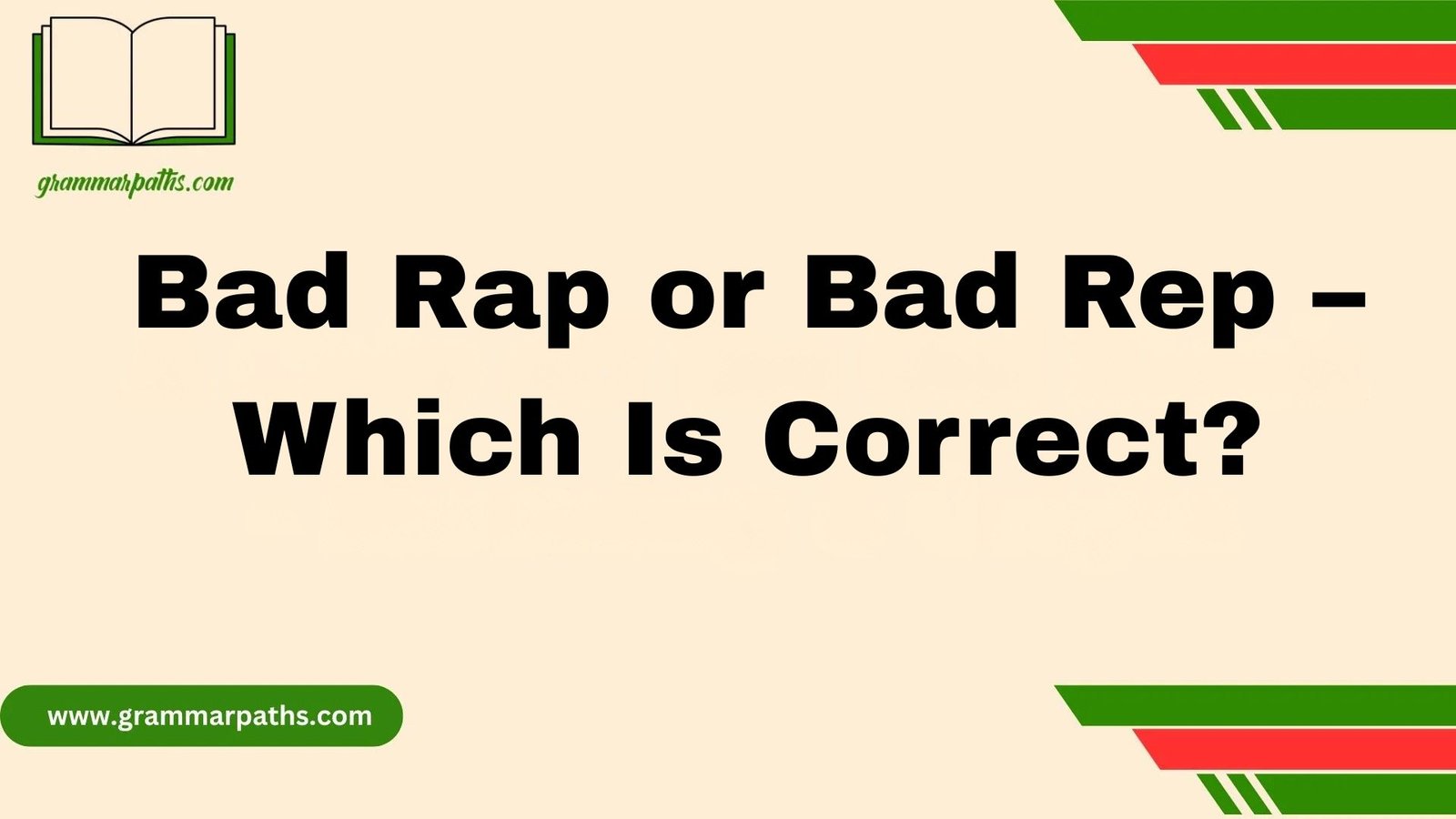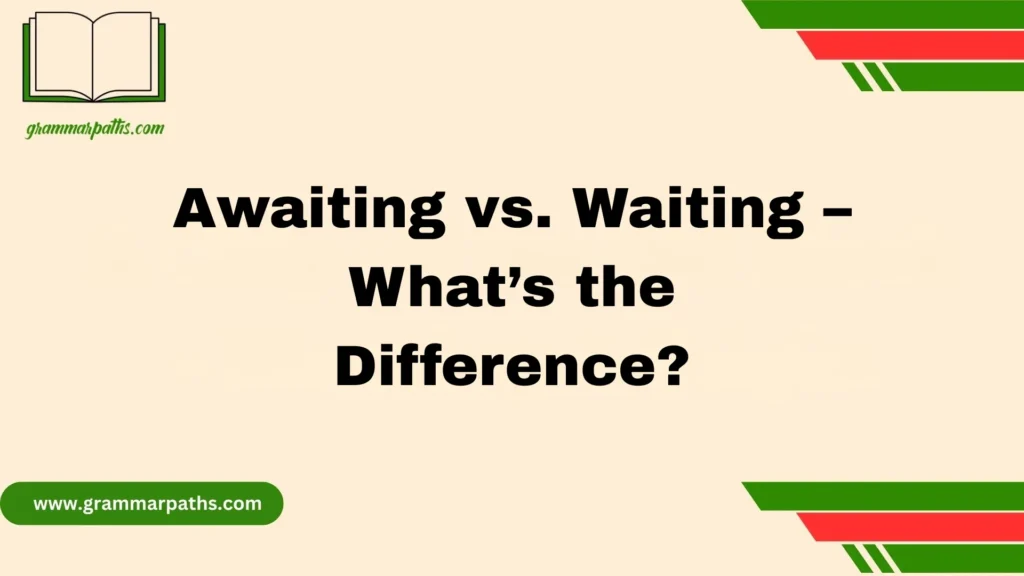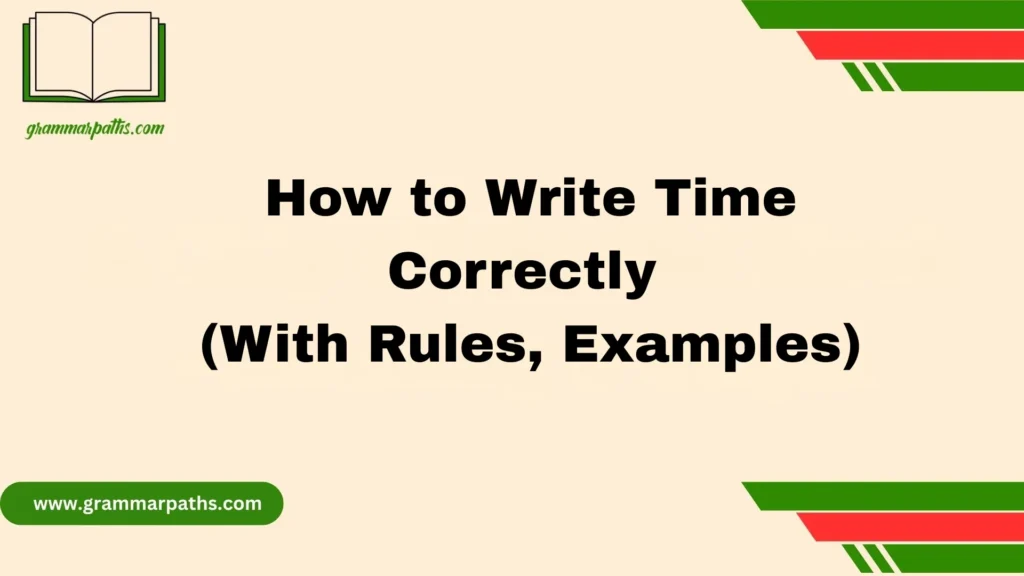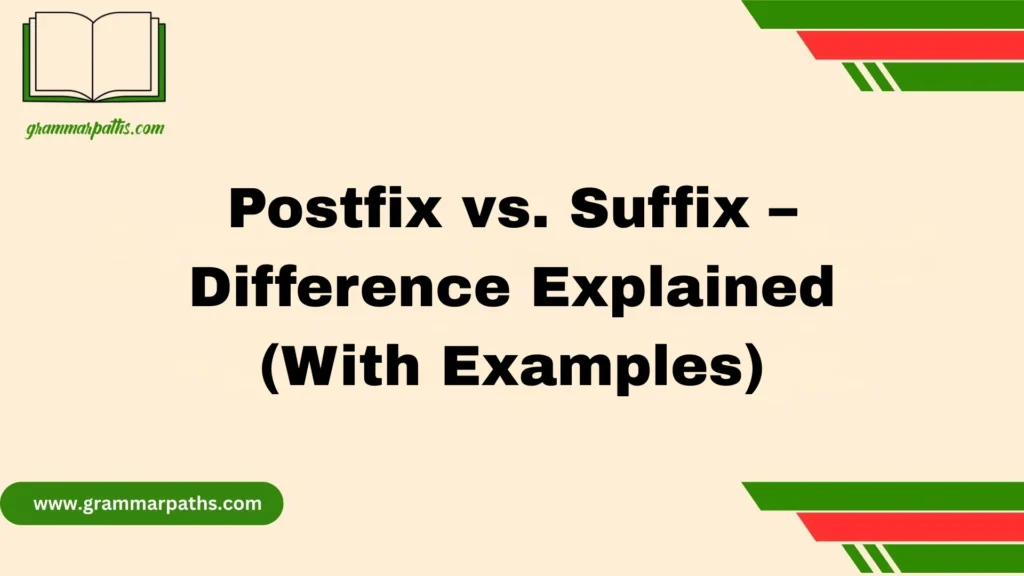I’ve seen many people give someone a bad rap when they really mean a bad rep, and I’ve even done it myself when writing a quick email or editing a caption for a blog about pop culture. In conversation, both sound the same, but they have very different roots. A bad rap comes from street vernacular and legal talk — think a rap sheet listing criminal record offenses or an unfair judgment. On the other hand, a bad rep is just a short way of saying reputation, often used when talking about someone’s public image in the media or speech. Over the years, working as a professional writer and editor, I’ve learned how a tiny swap like this can change the tone of your message and even make it sound less correct in context.
I once had a client in communication training who was trying to elevate their writing skills. They kept using bad rep when they meant bad rap, so I explained the origin of the phrases with a simple trick: imagine a rap battle versus a rep battle. The first feels like a contest from music or street culture; the second sounds like a debate about your character. That mental example stuck with them. It’s why I tell learners, whether they’re curious beginners or seasoned experts, to watch for these small differences. They’re not just about grammar or sounding smart — they’re about precision, clarity, and making sure your words land with the exact weight you intend.
The Correct Phrase: ‘Bad Rap’
A bad rap means someone is being unfairly criticized or has been given an undeserved negative reputation.
Example:“She got a bad rap for missing the meeting, but the truth is her email never went through.”
The phrase comes from slang, where “rap” means blame, criticism, or a criminal charge. In this sense, bad rap has nothing to do with music or wrapping paper—it’s about being judged harshly, often without justification.
Why “bad rap” is correct in most cases:
- Historically documented in this meaning since the early 20th century
- Rooted in law enforcement and street slang
- Supported by major dictionaries like Merriam-Webster and the Oxford English Dictionary
Table: Comparing Meanings
| Phrase | Meaning | Correct Usage? | Example |
| Bad rap | Unfair blame or criticism | ✅ Yes | “That policy gets a bad rap for being inefficient, but it’s actually effective.” |
| Bad rep | Poor reputation (short for “reputation”) | ❌ In this idiom, no | “Bad rep” isn’t the original phrase for undeserved criticism. |
| Bad wrap | Incorrect wrapping of an object or food | ❌ No | “The sandwich had a bad wrap, so it fell apart.” |
The Origin of ‘Bad Rap’
The word “rap” has been around for centuries, and it didn’t always mean music. In the 18th and 19th centuries, “rap” could mean:
- A sharp blow or knock (“He gave the door a rap.”)
- A quick speech or conversation (“They had a rap about politics.”)
- A criminal charge (“He caught a rap for burglary.”)
Bad rap likely evolved from this last sense—especially in legal slang. In the early 1900s, a bad rap meant a false or unfair criminal charge. Over time, it broadened to mean undeserved criticism in general.
Example from 1927 (Chicago Tribune archives):
“The defendant claims he’s getting a bad rap, that he wasn’t even in the city when the crime occurred.”
This usage spread beyond courtrooms, entering everyday English.
‘Rap’ in Historical and Cultural Context
The phrase “bad rap” got a boost from African American Vernacular English (AAVE) and jazz culture in the mid-20th century. In these communities, “rap” could mean talking smoothly, making a case, or expressing oneself.
By the 1960s and 70s:
- Rap sheet became common slang for someone’s criminal record.
- Musicians used “rap” to mean storytelling or delivering rhythmic speech (which later evolved into rap music).
- Writers and journalists adopted “bad rap” to describe someone unfairly blamed in both legal and social settings.
The Misheard Variations: ‘Bad Rep’ and ‘Bad Wrap’
Because “rap” and “rep” sound alike in casual speech, it’s easy to confuse them. But they’re not interchangeable here.
Bad Rep
“Rep” is short for reputation. It’s perfectly fine to say:
- “That store has a bad rep for slow service.” (Meaning: genuinely poor reputation)
But when talking about unfair blame or undeserved criticism, “bad rap” is the historically correct choice.
Bad Wrap
This is a complete mistake—likely from visualizing food or gifts being badly wrapped. Example:
- “That movie got a bad wrap from critics.” (Incorrect)
- “That movie got a bad rap from critics.” (Correct)
Common Causes of Misuse:
- Homophones (rap/rep) sound identical in many accents
- Lack of exposure to the correct written form
- Informal speech habits influencing writing
How to Use ‘Bad Rap’ Correctly
In everyday conversation:
- “Teachers often get a bad rap for being strict when they’re just following guidelines.”
In journalism:
- “The policy has received a bad rap despite evidence of its success.”
In professional communication:
- Use sparingly and only when the tone allows for idiomatic expressions.
Side-by-side comparison:
| Correct | Incorrect |
| “Social media gets a bad rap for being addictive.” | “Social media gets a bad rep for being addictive.” |
| “That neighborhood has a bad rap, but it’s actually safe.” | “That neighborhood has a bad wrap, but it’s actually safe.” |
Pop Culture and Media Examples
Movies:
- In The Shawshank Redemption, Andy Dufresne complains about getting a “bad rap” for a crime he didn’t commit.
Music:
- Country artist Chris Young’s song Getting You Home references giving someone a bad rap in a romantic context.
Television:
- In Friends, Joey says, “I think I get a bad rap for being foolish.”
These examples show that “bad rap” is deeply embedded in modern English—often used in both serious and lighthearted situations.
Why Accuracy Matters in Language
Using the right phrase matters for credibility, clarity, and professionalism. In a work email, for example, “bad rap” shows you know the correct idiom, while “bad rep” might make you look careless.
Real-world implications:
- In journalism, incorrect usage can reduce trust in reporting.
- In business, it may cause misunderstandings during negotiations.
- In education, teaching the wrong form spreads misinformation.
Quick Language Check Tools
If you’re unsure, you can verify your usage with:
- Dictionaries: Merriam-Webster, Oxford English Dictionary
- Writing assistants: Grammarly, ProWritingAid
- Style guides: Associated Press (AP) Stylebook, Chicago Manual of Style
Pro Tip: Read aloud to catch mistakes—your ear will notice when something doesn’t sound right.
The Linguistic Shift Debate
Language evolves, and some people argue that “bad rep” is becoming acceptable due to frequent misuse. This is the descriptivist approach—accepting language as it’s used.
Prescriptivists, however, stick to “bad rap” because:
- It’s the original form
- It’s widely recognized as standard English
- It maintains historical accuracy
In formal writing, sticking with “bad rap” remains the safest choice for now.
Final Take: Always Aim for Clarity
When you want to say someone has been unfairly criticized or misjudged, the correct phrase is “bad rap.” While “bad rep” makes logical sense for a genuinely poor reputation, it’s not the same idiom. And “bad wrap”? That’s just for burritos and presents gone wrong.
Conclusion
The choice between bad rap and bad rep comes down to understanding their roots and the context you’re in. Bad rap has a strong link to legal language and street culture, referring to an unfair judgment or negative label that isn’t always deserved. Bad rep, however, simply shortens reputation and focuses on how someone is publicly perceived. By knowing the origin, differences, and real-world usage, you can avoid confusion, write with precision, and make sure your message carries the right weight. In my own experience as a writer and editor, getting these details right doesn’t just improve your writing — it builds credibility.
FAQs
Q1: Which is more common — bad rap or bad rep?
A: Bad rap is more common and is the correct phrase in most contexts, especially in formal and media settings.
Q2: Is bad rep ever wrong to use?
A: Not always. Bad rep works when you’re clearly talking about someone’s reputation, but it can sound casual or slangy.
Q3: Why is it called a bad rap?
A: It comes from rap sheet, a legal term for a criminal record, and expanded to mean getting blamed or judged unfairly.
Q4: Can I use bad rap in business writing?
A: Yes, but only if it matches the context. For example, “Our product got a bad rap in early reviews” works well in a report.
Q5: How can I remember the difference easily?
A: Think of a rap battle (performance, dispute) vs. a rep battle (debate over character). This mental trick makes it stick.

Mia Rose is the passionate writer and founder of GrammarPaths.com, a resource dedicated to helping learners master English grammar, idioms, and writing skills with ease. With a deep love for language and years of experience in teaching and content creation, Mia simplifies complex grammar rules into clear, practical guides that readers can instantly apply.










